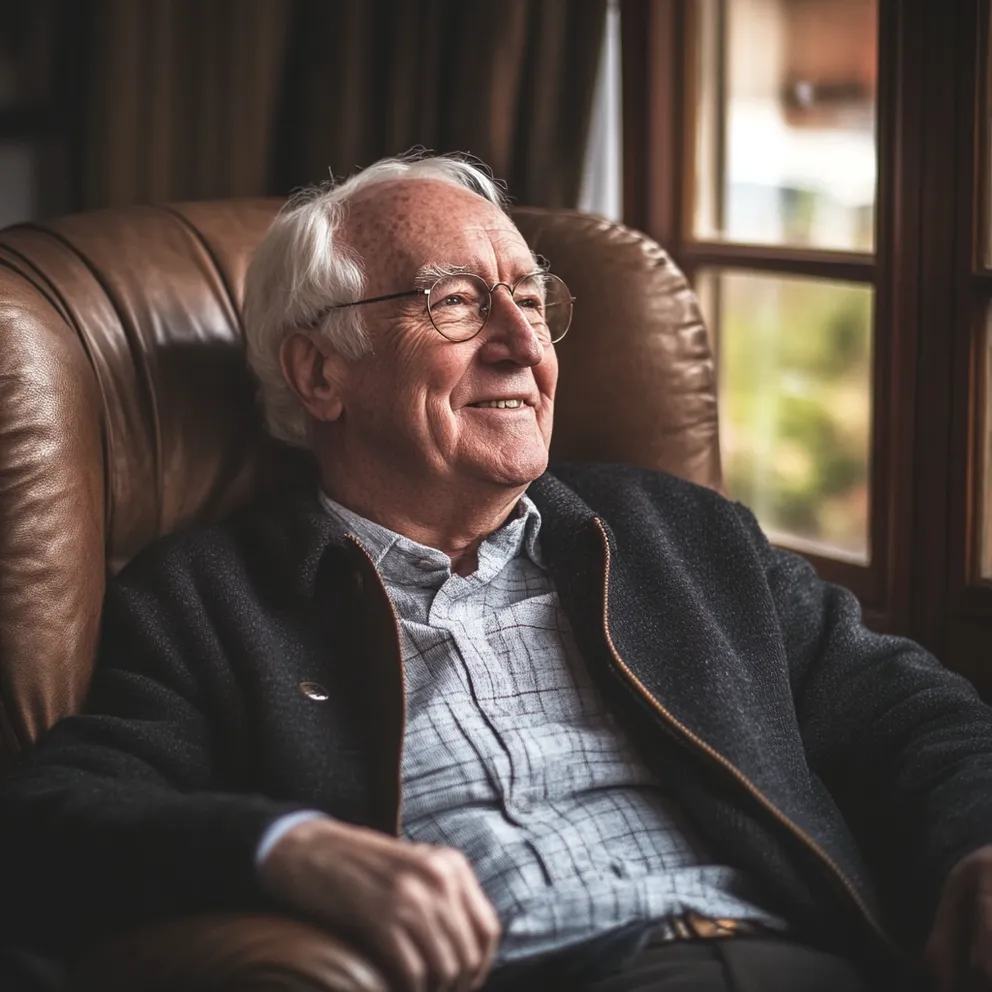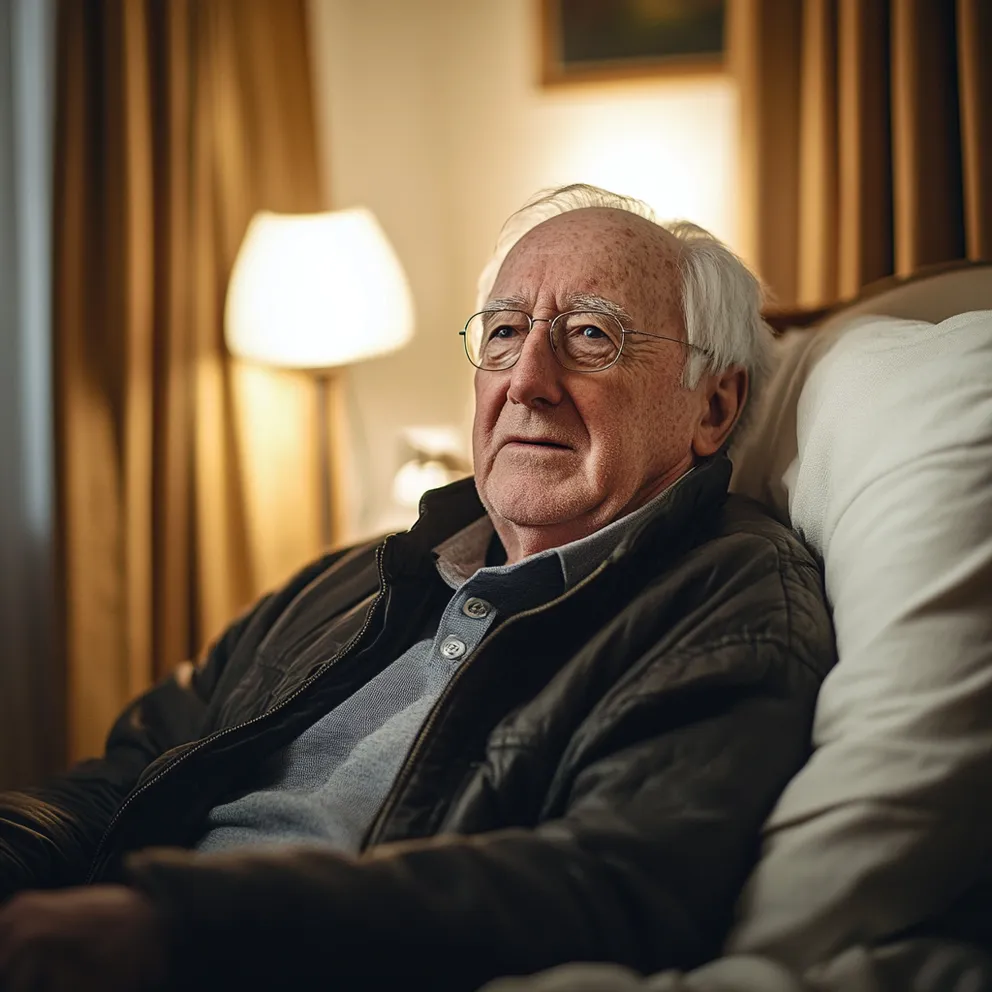In his final days, Mr. Lewis, a man who had built a legacy of love, charity, and family, found himself disillusioned by the hollow gestures of his children. A father of eight, both biological and adopted, and a caretaker to many foster children, he had spent his life giving to those around him. His late wife had always said, “You always have room for one more,” and Mr. Lewis had embraced that philosophy wholeheartedly.

But now, at 83, diagnosed with a terminal illness and knowing his time was short, he realized that the family he had given so much to had become distant. His home, once bustling with the energy of children, was now quiet. His children rarely visited unless they needed something, and their conversations always had an air of expectation. They came to him for money, not love. His grandchildren, while polite, were often more interested in their inheritance than in spending time with their grandfather.

When Mr. Lewis shared the news of his impending death, his family rushed to his side, not out of love but for the potential wealth they stood to gain. His eldest son, Richard, arrived with his family, feigning devotion, while Olivia, his daughter, followed suit, pretending to care. Even his adopted children, scattered across the globe, suddenly found time to visit. But Mr. Lewis saw through their charade, recognizing their hollow attempts to secure a piece of his fortune. Despite the pain of their insincerity, he kept his thoughts to himself, silently observing their behavior in his final days.

As the days passed, Mr. Lewis watched as his family members jostled for position, each trying to outdo the other in their fake displays of affection. He grew increasingly disheartened, realizing that the love he had once felt for his children was now overshadowed by their greed. They hovered around him, showering him with empty gestures, making promises they had no intention of keeping. But Mr. Lewis was no fool. He knew they were waiting for him to pass so they could claim their share of his estate.
When the time came for the reading of his will, his family gathered eagerly at the lawyer’s office. They were restless, impatient, and confident that they were about to receive their long-anticipated windfall. Richard, always the businessman, muttered to Olivia, “I bet he left the most to me.” Olivia, not one to back down, shot back, “You’re delusional. Dad always favored me.”
Their petty squabbling was interrupted by the arrival of Mr. Alaric, the family lawyer. But to everyone’s surprise, he was not alone. With him was a young girl, no older than thirteen, who stood quietly by his side. Her presence was unexpected and unsettling. “Who’s the kid?” Richard blurted out, his smugness giving way to confusion.

“This is Harper,” Mr. Alaric began, his tone deliberate and measured. “She’s here for the reading of the will.” The room fell into a stunned silence as Harper, a quiet and unassuming figure, stood before the heirs. For the first time, their greedy smiles began to falter.
As the lawyer continued, the full weight of Mr. Lewis’s intentions became clear. Harper, the young girl who had shown Mr. Lewis kindness in his final years, had been named the sole heir to his entire fortune. The revelation sent shockwaves through the room. Richard jumped to his feet, furious. “This is a joke, right? She’s just a kid! Dad wouldn’t do this!”
Olivia was equally outraged, her voice shaking with disbelief. “We’re his children! His blood! How could he leave everything to her?”
But Mr. Alaric was unphased by their protests. He unfolded a letter from Mr. Lewis, written before his death, and began to read aloud.

“Dear family,” the letter began, “I know you’re probably angry and confused by my decision. But I need you to hear me out. Over the past few years, Harper has been the light in my life. She’s the little girl who lived next door, and she noticed something none of you did – I was lonely.”
Harper, who had quietly cared for Mr. Lewis in his final years, had visited him every day without asking for anything in return. She brought him joy, laughter, and companionship, while his own children had been too consumed by their own lives to notice his loneliness. Mr. Lewis had grown close to Harper, finding in her the genuine care and affection he had longed for from his own family.
The letter continued, revealing that Harper had been diagnosed with a terminal illness, with only a short time left to live. Mr. Lewis, moved by her kindness and bravery, had decided to leave his fortune to her so that she could live her remaining days to the fullest. He had made provisions to ensure that Harper’s dreams – to travel, to see the world, to spend time with her family – could be realized before it was too late.

As the letter concluded, the room was filled with a heavy silence. The heirs, once so eager to claim their inheritance, were left speechless. Harper, with her wide eyes and quiet resolve, had unknowingly turned their world upside down.
Richard, still reeling from the shock, muttered an apology to the young girl. Olivia, tears streaming down her face, whispered, “You’re so brave, Harper. I hope you get to do everything you want.”
In the months that followed, Harper did exactly that. She traveled the world with her parents, saw the places she had always dreamed of, and made memories that would last beyond her short life. When she passed away, the remainder of Mr. Lewis’s fortune was donated to charities supporting children with terminal illnesses, ensuring that others like Harper would have the chance to live their dreams, too.

Mr. Lewis’s family, forever changed by his final lesson, found themselves reflecting on the true value of life. The money they had once fought over no longer mattered. Instead, it was Harper’s kindness and Mr. Lewis’s final act of love that left a lasting legacy.
In the end, Mr. Lewis had taught them the most important lesson of all: that love and kindness were worth far more than any fortune.





